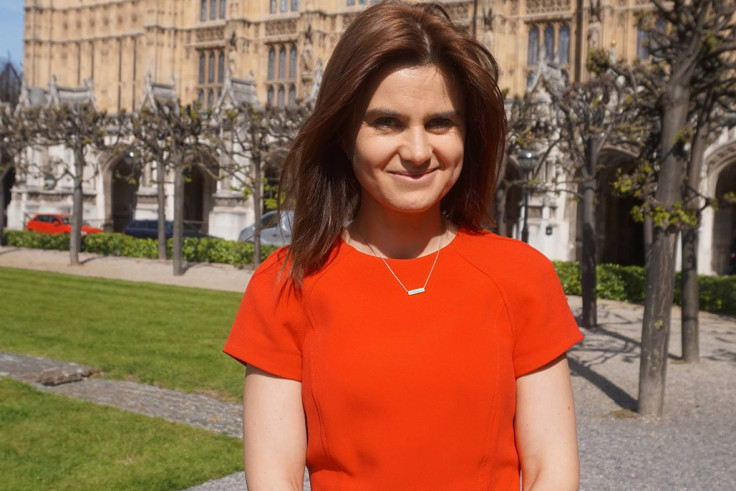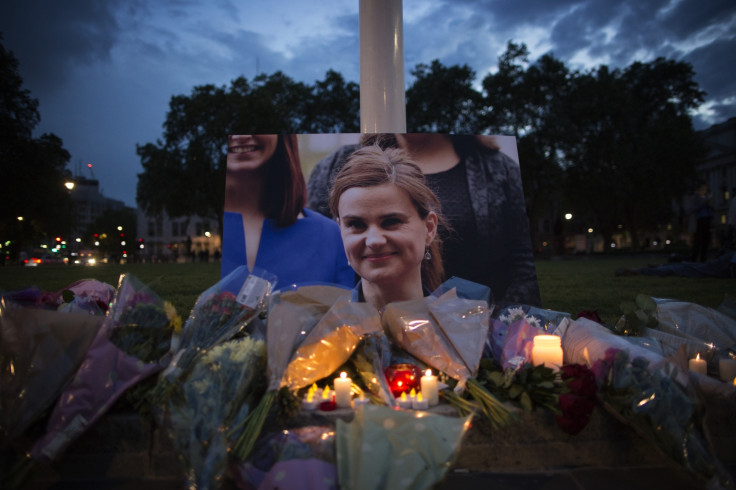After Jo Cox's tragic murder we need to stop ignoring death and rape threats to female MPs
We are living in a country where female MPs have recently reported extraordinary rates of violent verbal and written abuse. It is only just over a fortnight since Jess Phillips was deluged with 600 rape and death threats in a single night.
Last month, Diane Abbott, spoke out about receiving sexist and racist abuse, including "regular rape threats" and "pornographic pictures of black women with my head superimposed, emailed to every Member of Parliament."

Stella Creasy received a message containing a photograph of a masked man wielding a knife, saying this would be the first thing she would see when she woke up. Now a female MP has been stabbed and shot to death in the street.
Jo Cox, a passionate campaigner for humanitarian causes and a committed feminist, who had chaired the Labour Women's Network and advocated eloquently the benefits of immigration, was killed in Birstall, West Yorkshire, just before holding a constituency surgery.
It has since been revealed that Cox had experienced a barrage of hate mail in the months leading up to her death, including sexually-motivated threats. A man had been cautioned over the messages, but he was not the same man charged with her murder.
I'm not suggesting that there is necessarily a direct connection with such harassment in this tragic case. Cox's killer is reported to have shouted "Britain first" moments before he shot her, and Thomas Mair, the man charged with her murder, gave his name in court as "Death to traitors, freedom for Britain".
Police found Nazi regalia and far-right literature at Mair's house. The potential role of racist and anti-immigration sentiment in the motivation of Cox's killer must be probed, particularly against the backdrop of widespread hate-mongering and overt racism in recent inflammatory campaigning over the European referendum.

But we must also face the fact that a man felt able to silence a woman, whose political views he may have profoundly disagreed with, through brutal violence. The atmosphere we create matters. The type of behaviour we normalise towards women in the public eye (particularly political women daring to take actions and have opinions and stand up for what they believe in) matters.
We have created a widespread normalisation of the idea that women who dare to put their heads above the political parapet become legitimate targets for violent and sexual abuse; that they deserve to be silenced. Every time people have responded to death and rape threats and sexual abuse and harassment against female politicians by brushing it off, suggesting they should simply grow a thicker skin, or saying that it "comes with the territory," they have incrementally contributed to the acceptance of such behaviour.
None of them has directly caused or condoned a physical attack like the one on Jo Cox. But that doesn't mean that our attitudes towards the abuse of politicians, and in particular female politicians, don't need to be urgently re-examined.
Unfortunately, however, we live in a country that does not join the dots, particularly when it comes to violence against women. Just look at the Hampton stabbing from only last month, in which four women were stabbed in an attack where it was reported that the perpetrator deliberately and specifically targeted women. Nowhere was this reported as a misogynistic hate crime in spite of the clear evidence that women were the only and deliberate targets.
Different forms of violence and hatred are often inextricably connected. As US commentators have pointed out in the wake of the tragic shooting at a gay nightclub in Orlando, while it was reported that the shooter, Omar Mateen, "had no record of previous hate crimes", he was reportedly physically abusive to his ex-wife, Sitora Yusifiy.
In the wake of Jo Cox's murder, my heart went out to her family, friends and constituents who had suffered the devastating loss of a talented and popular MP, a wonderful wife, mother, sister and daughter. But my thoughts were also with all the female MPs who have also received violent abuse and death threats. I couldn't imagine how the news would make them feel.
Happy to join my @UKLabour colleagues to stand up against online abuse #ImaFeminist pic.twitter.com/XMjr61D5tG
— Jo Cox MP (@Jo_Cox1) November 4, 2015
A recent study found that a shocking 192 out of the 239 MPs who responded had experienced aggressive or intrusive behaviour, with half having experienced harassment or stalking (defined as behaviour that lasted two weeks or more and caused fear). Younger women were particularly targeted.
Cox herself had spoken out against the online abuse of female MPs just last year. Diane Abbott has written in Stylist magazine that the attack will leave female MPs feeling particularly vulnerable, and suggesting that Cox's murder was framed by "vitriolic misogyny". As if to prove her point, when Abbott tweeted the article, responses ranged from dismissal to anger. Comments included:
"Oh. No security problem for male MPs then FFS its all about the women!!"
"Oh & that can't happen to a man? Very stupid comment from someone who bangs on about equal rights"
"Hey, you MP's could always walk about in bulletproof vests. An extra large one for you, I think, porky."
Until we start joining the dots and looking at the wider picture we will not be able to tackle the deeper roots of the idea that women can be silenced in the most violent ways possible by those who hate or disagree with them.
Laura Bates is the founder of the Everyday Sexism Project and author of Girl Up
© Copyright IBTimes 2025. All rights reserved.





















